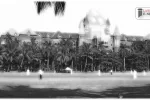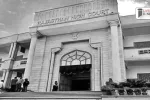Acquittal In Murder Case – Circumstantial Evidence – Chain Of Events Is Not Complete – Presence Of Eyewitness Doubtful: Supreme Court

In a significant ruling, the Supreme Court of India dismissed an appeal against the acquittal of six individuals accused of murder, underscoring the principle of extending the “benefit of doubt” to the accused in criminal proceedings.
The apex court, in its judgment in the case of Chhote Lal vs. Rohtash & Ors. (Criminal Appeal No.2490 of 2014), upheld the decision of the High Court which had earlier acquitted the six accused. The case pertained to the murder of Kishan Sarup, with the initial conviction handed down by the Court of Sessions under Sections 148, 201/149, and 302/149 of the Indian Penal Code (IPC).
The Supreme Court, led by Justice Pankaj Mithal, emphasized the importance of incontrovertible evidence in criminal cases, stating, “The prosecution in this case has failed to prove the guilt of the accused both by circumstantial evidence and by means of evidence of the eyewitness.” This observation highlights the court’s stance on the necessity of conclusive evidence for upholding a conviction.
The appellant, Chhote Lal, who is also the father of the deceased, was the sole eyewitness to the initial assault but not to the actual murder or the burning of the victim’s body. The court expressed concerns about the reliability of his testimony, noting potential biases due to long-standing enmity with the accused group.
In its judgment, the Supreme Court remarked, “In respect of circumstantial evidence, the chain of events is not complete whereas the presence of an eyewitness is also doubtful.” This statement formed the basis for the decision, reinforcing the legal principle that guilt must be established beyond a reasonable doubt.
The case did not feature any notable referred cases or specific advocates representing the parties. However, the ruling sets a precedent in emphasizing the rigorous standards required for criminal conviction in India.
The dismissal of the appeal by the Supreme Court in this case reaffirms the judiciary’s commitment to ensuring justice is based on solid and indisputable evidence, a cornerstone of the legal system.
Date – 14-Dec-2023
CHHOTE LAL VS ROHTASH & ORS.






